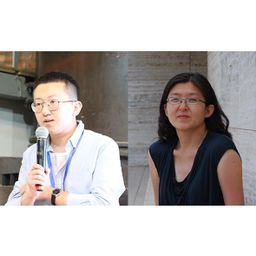
Xu Jianzhuo Wang Yan
XU Jianzhuo, male, is a PhD student based in the Department of Architecture, Built Environment and Construction Engineering of Politecnico di Milano, Italy. He graduated from the School of Architecture, Harbin Institute of Technology, China, with a Master of Architectural History and Theory in June. His research interest mainly lies in the Infrastructure Heritage of the Chinese Eastern Railway(CER) and Industrial Heritage Conservation. His publications are all focused on the Infrastructures Heritage along CER. E-mail:xusunmao92@gmail.com
WANG Yan, female, PhD, is an associate professor in the School of Architecture, Harbin Institute of Technology. Her research field is Architectural History and Theory, and is specialized in Modern Architecture in China and Architectural Heritage Conservation. Her publications: Art Nouveau Architecture in Harbin, The Construction and Technology of Heritage Buildings along Chinese Eastern Railway, and other papers which were published in Journals and Congress. E-mail:ayan97@126.com
Sessions in which Xu Jianzhuo Wang Yan participates
Thursday 1 September, 2022
Sessions in which Xu Jianzhuo Wang Yan attends
Thursday 1 September, 2022
This lecture will argue that the landscapes of industrial heritage that can be found in different parts of the world are directly related to the place-specific trajectories of deindustrialization. In other words: the different ways in which deindustrialization impacts on local communities has a direct bearing on the emergence of forms of industrial heritage. I will differentialte between deindustrialization paths and related industrial heritage regimes in a) Anglo-...
Friday 2 September, 2022
In the refusal of people in communities abandoned by industrial capital to abandon their own places, we can read an implicit critique of the mobility and unaccountability of capital, raised by those who were once inside (however tenuously or uncomfortably) and now find themselves marginalized, “left behind.” The desire to catch up again, whether through attracting new investment or transvaluing abandoned sites as tourist attractions, makes this an essentially conservative critique that is ...

